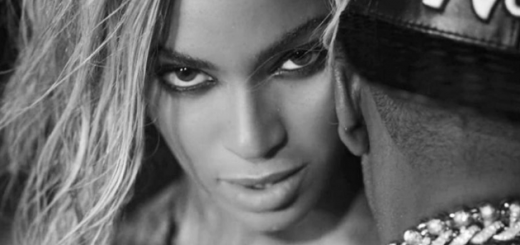“Izzo (H.O.V.A.)” by Jay-Z
For starters, the title/subtitle of “Izzo (H.O.V.A.)” is actually an alternate spelling of Jehovah, i.e. the name of God as derived from the Old Testament. It has been reported that the reason Jay-Z adopted “Hova” or “Hov”, as he would sometimes call himself, as a moniker is because such is what he refers to as his “God name”, which is in full “Jay-hova”.
Back around the time this song came out, an African-American religious sect known as the 5 Percent Nation was very popular in the hip-hop community, most notably via the success of the Wu-Tang Clan. And figures who identified with this belief system often referred to themselves as “gods”. So maybe that’s what Jay-Z meant by his “God name”, i.e. in his own way of identifying with that street movement.
Lyrics of “Izzo (H.O.V.A.)”
In any event, the lyrics are not religious in nature. What we’re rather dealing with here – with Jigga comparing himself to God, if you will – is the type of self-exaltation which Jay-Z has been instrumental in making a standard as far as rap music goes.
And describing this song so is not to imply that it is filled with the type of multi-millionaire braggadocio that every rapper seems to be up on these days (with this track coming out before Jay-Z really-really blew up). Or rather, let’s say what the standard Izzo really helped solidify, besides that of a rapper biggin’ up himself to Biblical levels (something that the likes of Kanye would also do later down the line), is that of a hip-hop artist presenting himself as a drug dealer turned musician.
As far as rappers who can actually prove that they were once slinging drugs, which in the hip-hop community serves as certification of one’s thugness, Jay-Z is considered to be one of the more credible names on that list.
Verse 1
And for readers who are more interested in Jigga’s come-up, his 2010 autobiography Decoded goes into even greater detail in terms of his street antics. So Izzo can be considered more like an abridgement of that part of his life, with the vocalist poetically noting at the beginning of the first verse for instance that he was dealing drugs in Virginia. With this being Hov and all, he goes on to allude to making it big Down South, even teaching the Virginian locals themselves how to become “hustlers”.
Later in the verse, Jay-Z references the time he stabbed an industry figure in 1999. This is reportedly the only time on record that he’s actually been in trouble with the law. And as noted in the lyrics he did “beat them charges” or at least received a slap on the wrist, i.e. three years’ probation.
Verse 2
Meanwhile, the second verse focuses on his career ambitions as a rapper. Jay-Z depicts himself as someone who isn’t out to simply make money but rather being resolved to reshape the industry on behalf of his culture.
He did of course go on to become one of the most-successful businessmen to ever sprang from the humble roots of traditional rap music, and some would say that he has also achieved the goal of properly representing hip-hop/African-American culture.
Verse 3
The commencement of the third verse may actually be one the most-interesting parts of this song. Therein, Jigga clarifies that even though drug dealing is one of his favorite topics, he is not advocating that listeners do so.
He goes on to further clarify that his taking up such a profession was actually due to economic necessity and such being the norm in the environment in which he was raised. This implies that he did not do so just to play a role or prove himself tough.
Indeed later on in the passage, the vocalist also seems to imply that being engaged in the street hustle was indicative of his innate hard-work ethic, or something like that. Either way, being inspired by the experience now has him approaching the rap game with a failure-is-not-an-option type of attitude.
In Conclusion
Conclusively, as stated in the chorus, this piece is meant to be an “anthem”. But unlike other such songs which are usually based on propagating some type of a cause, lyrically this anthem is designed primarily to praise the artist relaying it.
But that said, Jay-Z seems to have also written it with a type of encouraging message embedded within. And implicitly, said message would read like if you want to make it in the world, then you have you get your behind and give that aspiration its proper effort.

When was “Izzo (H.O.V.A.)” released?
Interesting to note is that this track (and the album it is featured on) was officially released by Def Jam Records and Roc-A-Fella Records on 9/11, i.e. 11 September 2001.
“Izzo (H.O.V.A.)” served as the lead single from “The Blueprint” (2001), which many consider to be Jay-Z’s signature album.
Jay-Z premiered this song during the BET Awards of 2001. The event was held on 19 June of that year in Las Vegas (and was actually the first BET Awards ever held).
Later that June, during the 2001 edition of the Hot 97 Summer Jam, Jay-Z, whose setlist included Izzo, brought the legendary Michael Jackson (1958-2009) on stage.
Credits
This instrumental was put together by Kanye West. In fact it is the first hit song he ever produced, a couple of years before his own debut album, “The College Dropout” (2004), would come out.
Kanye is also listed as one of the writers of this song, as is Jay-Z and the following:
- Fonce Mizell (1943-2011)
- Deke Richards (1944-2013)
- Freddie Perren (1943-2004)
- Berry Gordy
Gordy is of course the man who founded Tamla Records (aka Motown) back in 1959. Moreover, back in the days he was down with a production crew known as The Corporation, alongside the aforementioned Mizell, Richards and Perren. And it was The Corporation who wrote and produced The Jackson 5’s “I Want You Back” (1969), which is heavily sampled onto Izzo.

More Facts about “Izzo (H.O.V.A.)”
The music video to this track, which was directed by Dave Meyers, was filmed in Jay-Z’s home city of NYC. It features his Roc-A-Fella Records’ co-founder Damon Dash, as well as the likes of Kanye West, Nelly, Outkast, Eve, B-Real, Trina and Destiny’s Child (with Jigga of course going on to marry the leader that group, Beyoncé, in 2008).
“Izzo (H.O.V.A.)” peaked at number 8 on the Billboard Hot 100, which was a more notable accomplishment for a rap song back in 2001 than it is nowadays. With that said, this song marks the first time Jigga actually made it onto the top 10 of the Hot 100.
The track also appeared in the top 10 of three other Billboard lists stateside (Hot Rap Songs, Hot R&B/Hip-Hop Songs and Rhythmic), in addition to making it onto the UK Singles Chart and charting in a few other European countries. And whereas that may not be an overly impressive chart showing for someone like Jay-Z, this piece still stands as one of his most recognizable singles.
Cam’ron and fellow Dipset cohort Jim Jones claimed that Kanye sold them the instrumental to Izzo first or at least promised to do so. In fact they didn’t find out that he rather let Jay-Z use it until watching the aforementioned BET Awards, when Jigga premiered the track. And considering how catchy the beat is and all, of course they were upset with Yeezy.
Then another industry figure, Kyambo Joshua (aka “Hip Hop”, whom Kanye heavily refers to on his 2004 track “Last Call“), has implied that who Kanye actually created the instrumental for, even before Cam’ron caught wind of it, was Ghostface Killah of the Wu-Tang Clan.

Who is the female singer on “Izzo (H.O.V.A.)”?
The catchy hook to this song, which is transcribed “H to the izz-O, V to the izz-A”, is sung by one Demme Ulloa. Interesting to note is that she later sued Jay-Z and co. for not paying nor crediting her for her contribution. As of now, she is acknowledged as an ‘uncredited vocalist’ on a number of music platforms. The case eventually ended up being dismissed by the court.
Jay-Z’s “The Blueprint” Album
Jay-Z, had his sixth studio album, “The Blueprint” released on September 11 of 2001.
The album was recorded at the Baseline Studios in New York. At the time of recording the album, Jay-Z had to spend time between court and studio sessions as he was on trial for assault and gun possession charges.
The following record producers have been credited with the production of “The Blueprint”:
- Timbaland
- The Trackmasters
- Kanye West
- Just Blaze
- Eminem
- Bink
American record label, Def Jam Recordings, owned by Universal Music Group and the defunct Roc-A-Fella Records were responsible for producing and releasing the album.
Within its first week of release, sales of a little over 427,000 copies were recorded. It debuted at the summit of the Billboard 200 and remained in that position for three weeks. In the UK and Canada, it peaked at No. 30 and No.3 respectively.
With a 2x Platinum certification in the US, Platinum in Canada and Gold in the UK, the album was nothing short of a commercial success.
In 2019, it became the first entry in the 21st Century to be created by the Library of Congress for preservation in the National Recording Registry in the US.
“The Blueprint” was placed at the 464th position on Rolling Stone’s 2003 list of “The 500 Greatest Albums of All Time”. It was however moved to No.50 in a revised edition of the said list which was published in 2020. Pitchfork placed it at No.5 on their “Top 200 Albums of the 2000s” list published in 2010.








